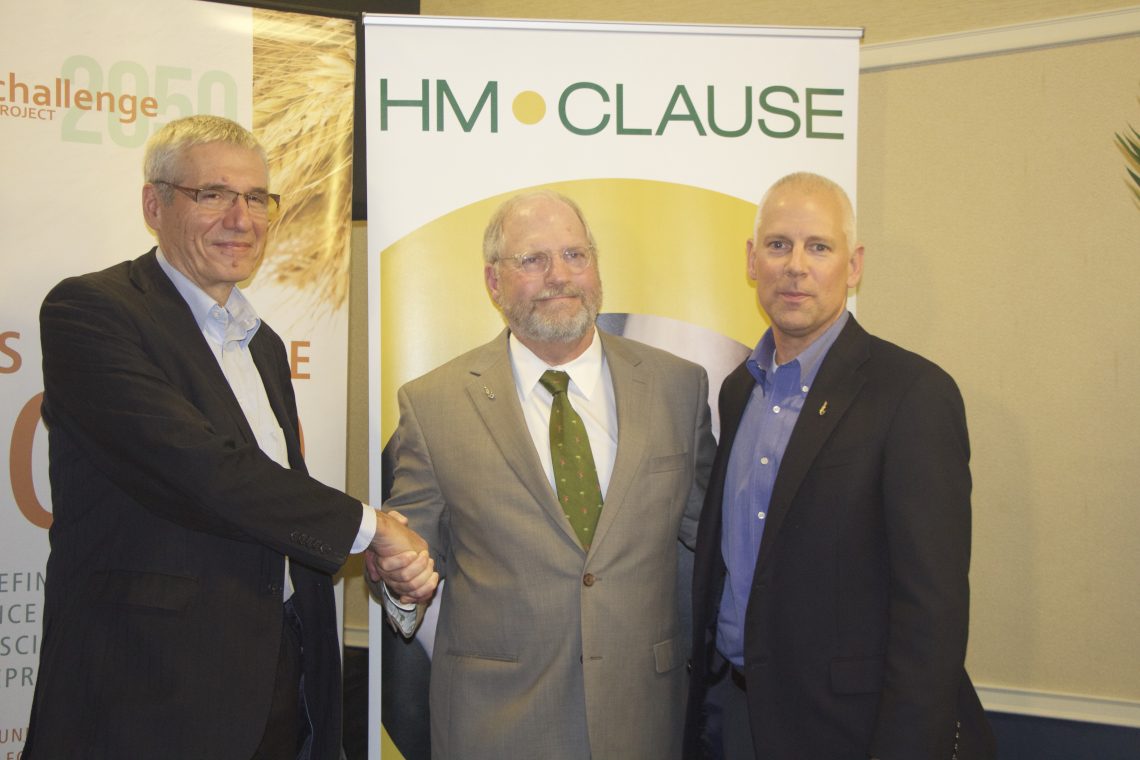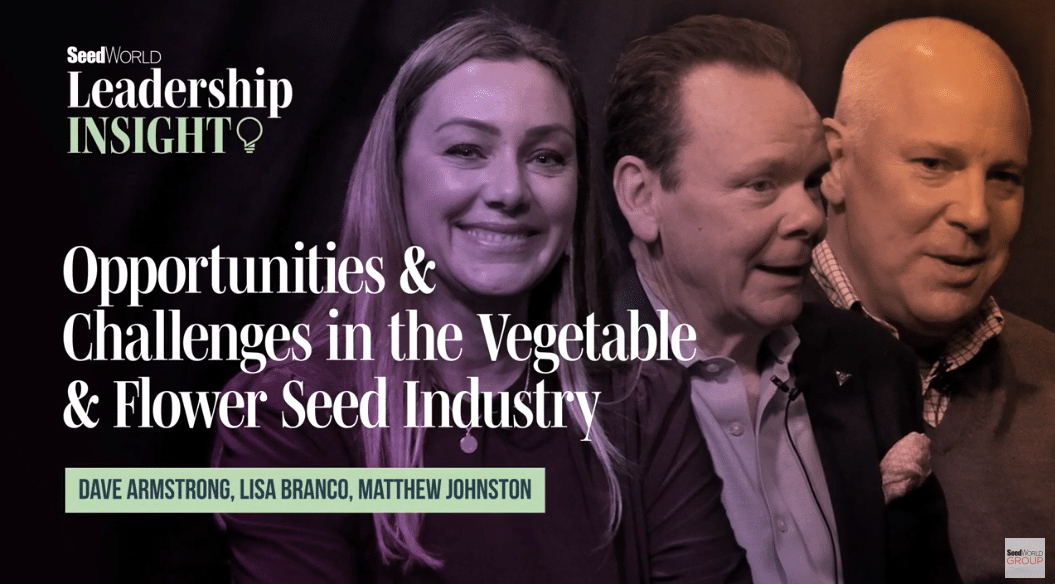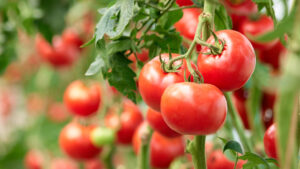Today, March 9, leadership from HM.CLAUSE, a business unit of Limagrain, and the University of Florida Institute of Food and Agricultural Sciences (UF/IFAS) held a press conference in Gainesville, Florida, announcing the beginning of what is hoped to be a long-term partnership.
A vegetable seed developer and provider of more than 23 species, including tomato, melon, pepper, cauliflower and watermelon, Limagrain and HM.CLAUSE recognized the diversity that comprises Florida agriculture, which is responsible for more than 2 million full- and part-time jobs and contributes nearly $2 billion to the state’s gross domestic product. As such, Matthew Johnston, CEO for HM.CLAUSE and a Florida native, says that the University of Florida and the expertise of its researchers and work done through the Extension system is unlike any other institute in the world.
Johnston explains that the extreme diversity of crops and production in the “Sunshine State,” combined with the infrastructure of the University of Florida and the role it plays in the production of those 280 to 290 commodity crops makes it a unique and attractive partner.
Jack Payne who serves as the UF/IFAS senior vice president for agriculture and natural resources, says that the university shares common values with Limagrain, naming cooperation, progress and perseverance as guiding principles.
“And like Limagrain, we place our people at the heart of our organization,” Payne says. “We both realize that to advance, we must invest in innovation. We know that no one succeeds alone and that partnerships will move us further faster and that research and science is the path to better living and providing a better quality of life to people in the world.”
According to Johnston and Payne, the partnership looks to enrich lives — for UF students and researchers, as well as executives at Limagrain and HM.CLAUSE.
One example is the College of Agricultural and Life Sciences Challenge 2050 Project, a certificate program, which received initial funding of $300,000 from HM.CLAUSE, that helps to prepare students to be global leaders. “Today’s students or The Millennials want to save the world,” Payne says.
The program helps students understand the challenges associated with global population growth and requires them to think broadly, dream boldly and work collaboratively, Payne explains. The program focuses not only on agriculture, but also the economic, environmental, food, health and social systems.
“We are only at the beginning of scratching the surface on what we can do together to collaborate in areas such as pathology, entomology and plant breeding,” Johnston says. “We are pleased to be here and embarking on this partnership.”
Other in-kind contributions are being made, as well. One such example is that Limagrain has made an open invitation to UF plant breeders and researchers, making use of any one of its laboratories or research stations around the world.
Food security, food safety, biodiversity, energy independence and sustainability — all of these Payne lists as part of the global challenge. “Our relationship with Limagrain and its subsidiary, HM.CLAUSE, provides exciting opportunities for not only our researchers but also our students — to actively engage in finding solutions to issues like feeding our growing world population, using our limited natural resources in sustainable ways, and preparing agricultural leaders to work together in new ways,” Payne says.
Johnston explains that the United States is HM.CLAUSE’s single largest market in vegetable seed sales globally, yet it comprises only about 15 percent of the company’s turnover.
“What you have is a very fragmented and diversified market globally for vegetable seeds,” he says. “When we look at growth potential for the vegetable seeds division and Limagrain, we consider the United States as the largest growth opportunity for us in the coming 10 years.”
Limagrain CEO Daniel Cheron joined Payne and Johnston at the press conference today. “We want to help the farmers produce the quality and quantity to feed the world, and we have a big challenge to feed 9 billion people by 2050,” Cheron says. “To help feed the world, we need partners and partnerships with universities in different countries. I’m very pleased to have this partnership with the University of Florida. It’s a major partnership for us moving into the future. We want to work together, and I’m very pleased to be here today to materialize this agreement.”














